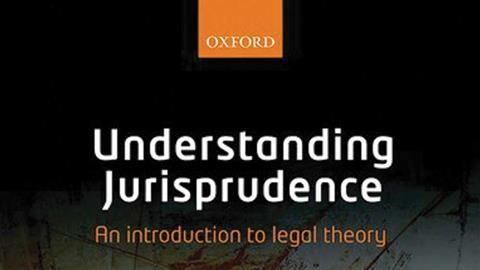Raymond Wacks
£31.99, OUP
Sadly, this book was published several years after my university days. It would have been of immense use, bringing together the disparate strands of a highly complex field of study: the nature of law and its purpose.
Wacks notes in his preface that ‘painstaking’ comments on the first edition were received from, among others, Ronald Dworkin and John Finnis. Given that such luminaries have cast their eye over and approved the work, it is not for the humble critic to dispute its content, yet an obvious advantage of the book in a field not always known for its direct approach is its presentation. Summaries of arguments are reinforced by boxed definitions and/or quotes from the works under consideration. At the end of each section, questions and suggested further reading allow the entrant to consolidate their grasp of the area and the reasonably well-versed to discover something new. This edition contains expanded chapters on, among much else, feminist theory and revised discussions of the rule of law, global justice and rights, and post-modernist views.
The book synthesises complex arguments via thematic groupings, moving from the axiomatic conclusions of natural law, through modern legal debate (Hart, Raz and positivism), to encompass anthropological jurisprudence, and law and social theory. The final chapter, ‘Jurisprudence understood?’, sees Wacks consider whether his own efforts in summarising the field are contributing to its decline. Is he, by creating a summary work, guilty of steering students away from fundamental works of legal theory or (unhelpfully) redefining the field? Any companion work certainly makes choices about what it includes; what ‘is’ and ‘isn’t’ jurisprudence is not without controversy. Yet ambiguity around the boundaries of the subject are part of its elemental nature, and an overview that students can fully understand is likely to encourage deeper, more informed thought.
Legal philosophy can be difficult for law students. Often taught to think in positivist terms, they are subsequently asked to reflect on and re-evaluate the nature of their subject of study – a valuable task, undoubtedly, but a tricky one. A book like this cannot help but demonstrate the richness of the subject and how fundamental it is to the development and practice of law.
Tom Garbett is a solicitor
































No comments yet